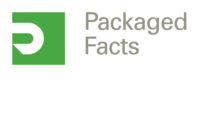Legal Perspectives for Processed Meat Producers
If meat is categorized as the “new asbestos,” imagine the litigation 20 years from now

Learn more about current meat trends >
Last fall, in a perfect illustration of how scientific literature and research can be distorted, the World Health Organization (WHO) and its International Agency for Research on Cancer (IARC) indicated that meat especially, but not exclusively, processed meats such as bacon, sausage and hot dogs belong in the same category as smoking and asbestos in terms of their potential to cause cancer. The news reports that followed barely touched on the scientific and medical facts, yet flooded the popular media with sound “bites” declaring that processed meats – and all processed foods for that matter are deadly.
The North American Meat Institute (NAMI) released a statement in anticipation of the announcement, noting that “a vote by an International Agency for Research on Cancer (IARC) monograph panel classifying red and processed meat as cancer ‘hazards’ defies both common sense and numerous studies showing no correlation between meat and cancer, and many more studies showing the many health benefits of balanced diets that include meat. Scientific evidence shows cancer is a complex disease not caused by single foods, and that a balanced diet and healthy lifestyle choices are essential to good health.”
According to Roger Clemens, PhD, adjunct professor of pharmaceutical sciences and associate director of the regulatory science program at the University of Southern California’s School of Pharmacy, “Red and processed meat contains a variety of critical nutrients, and can be part of a healthful diet. In fact, these products are components of the Mediterranean-style diet [that] scientists contend is healthful.”
The WHO/IARC reports raise a critical concern, and one that seemingly has yet to be considered. If meat really is categorized as the “new asbestos,” just imagine the litigation 20 years from now — and the types of questions litigants will be asked: “Can you identify that sausage patty by a brand name, trade name, and manufacturer’s name?” “Were you able to distinguish a Hebrew National hot dog from a Nathan’s hot dog based on taste alone?” “Did you read the warning on that package of bologna?” “By the way, what exactly is bologna?” “When did you first learn that bacon could cause your colon cancer?”
The train will have fully left the station when plaintiffs’ firms start to troll for cases and develop liability experts who, in two decades’ time, will argue that this WHO report placed manufacturers on notice that their products could cause cancer, yet they continued to sell it to the public.
Should manufacturers now recall all processed meats and cease manufacturing them to avoid potential liability? Should insurers now start drafting “bacon exclusions” to insurance policies? Will we someday have the Beef Jerky Bankruptcy Trust?
If this seems far-fetched, it is worth noting that so far, as reported in “Class (Action) Wars,” PF May, 2012, hundreds of multimillion dollar class action suits have been filed based on the use of the term “all natural” to imply that a product is “healthy or contains beneficial ingredients,” destroying many businesses in legal fees alone, regardless of whether or not they win their case.
The potential for similar ambulance-chasing tactics against meat product manufacturers could be worse: The press release distributed by the IARC states: “Processed meat was classified as carcinogenic to humans (Group 1), based on sufficient evidence in humans that the consumption of processed meat causes colorectal cancer.” IARC defines Group 1 as follows: “This category is used when there is sufficient evidence of carcinogenicity in humans.”
In other words, there is convincing evidence that the agent causes cancer. The evaluation is usually based on epidemiological studies showing development of cancer in exposed humans. Agents can also be classified in Group 1 based on sufficient evidence of carcinogenicity in experimental animals supported by strong evidence in exposed humans that the agent has effects that are important for cancer development.
Under this definition, alcoholic beverages and certain salted fish are Group 1 carcinogens along with processed meats, yet the media chose asbestos and smoking as the comparison. “As with moderate exposure to solar radiation (sunshine), an IARC Group 1 carcinogen is healthful in maintaining vitamin D status,” Clemens points out. “Critical to our understanding of health is to differentiate risk versus hazard and exposure to a given hazard.”
Damningly, the WHO/IARC release lacks any meaningful detail at this point. What dose increases the threat? Are some processed foods more dangerous than others? Are there other contributing factors? Were these epidemiology or animal studies? Are there contrary studies? These are important questions that must be carefully considered before jumping to conclusions.
In asbestos litigation, plaintiffs’ experts point to early asbestos studies, then — with the benefit of hindsight — expand their significance to argue that all asbestos was dangerous decades before the true science had actually developed. If history is precedent, we will see the same type of back-filled science if this WHO/IARC declaration someday evolves into a better understanding of how processed foods can lead to disease.
In the meantime, manufacturers of processed meats should be contemplating warnings of their own, such as: “The WHO has reported that that there is sufficient evidence that certain processed meats can cause colon cancer.” While not an ideal solution, it would offer some protection in the event of a rush to litigation by those seeking to take advantage of the processors who will bear the brunt of the WHO/IARC’s ill-conceived and poorly thought out pronouncement.
Looking for a reprint of this article?
From high-res PDFs to custom plaques, order your copy today!






